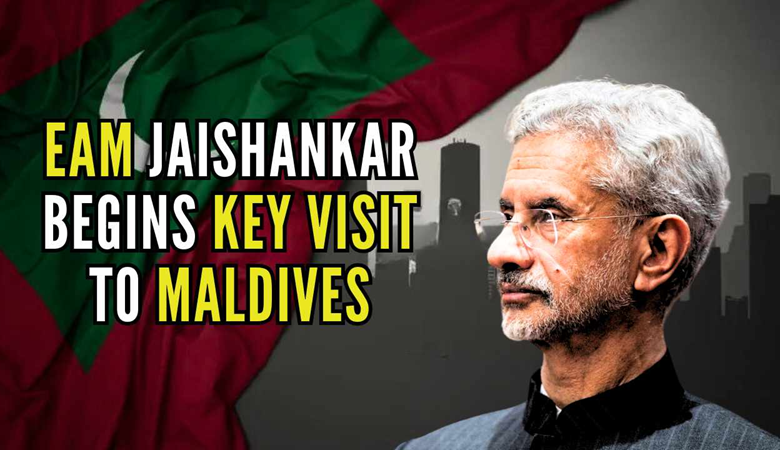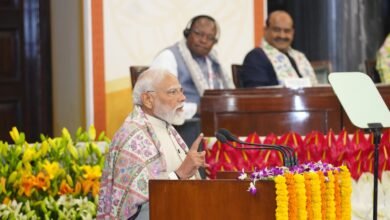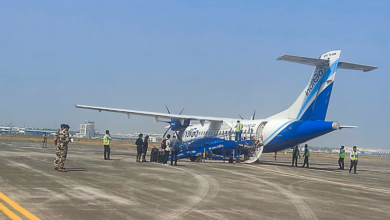Jaishankar’s Strategic Visit to the Maldives Amid Growing Regional Tensions

News Mania Desk/Agnibeena Ghosh/9th August 2024
India’s External Affairs Minister, S. Jaishankar, has embarked on a critical three-day visit to the Maldives, commencing on August 9, 2024. This visit marks the first high-level engagement from New Delhi since relations between India and the Maldives became strained following the election of the Maldives’ pro-China President, Mohamed Muizzu, nearly nine months ago. The visit is seen as a significant step towards addressing the diplomatic challenges and revitalizing the bilateral ties between the two nations.
Jaishankar’s visit follows the earlier engagement of President Muizzu with India, where he attended the swearing-in ceremony of Prime Minister Narendra Modi and the Union Council of Ministers on June 9. This interaction was the first sign of thawing relations, and Jaishankar’s current visit is expected to build on that momentum. The Ministry of External Affairs highlighted the importance of this visit, emphasizing that the Maldives remains a key maritime neighbor and a crucial partner in India’s “Neighbourhood First” policy and its vision for “SAGAR” (Security and Growth for All in the Region).
The primary objective of Jaishankar’s visit is to strengthen the already close partnership between India and the Maldives while exploring new opportunities to enhance their bilateral relationship. The visit is expected to address various areas of cooperation, including security, trade, and regional stability, with a focus on countering the growing influence of China in the region. Given the recent political shifts in neighboring countries, this visit is particularly significant for India’s strategic interests.
India’s diplomatic relations with its immediate neighbors have faced numerous challenges in recent years. The ousting of Sheikh Hasina’s government in Bangladesh and the installation of an interim government led by Nobel Laureate Muhammad Yunus have raised concerns about India’s diminishing influence in the region. Bangladesh, along with several other neighboring countries such as Pakistan, Nepal, and the Maldives, has seen a shift towards leadership that is perceived as pro-China. This trend has added to the complexities of India’s foreign policy, particularly as China continues to expand its footprint in South Asia.
The situation in the Maldives is reflective of a broader trend where India’s regional allies are increasingly gravitating towards China. This shift has prompted critical evaluations of India’s foreign policy under the Modi government, with some questioning the effectiveness of its strategies in maintaining strong ties with its neighbors. However, despite these challenges, India has managed to maintain relatively neutral relations with Sri Lanka and Bhutan, both of which continue to balance their ties with China and India, albeit with a slight tilt towards New Delhi.
When questioned about the growing influence of China and its impact on India’s regional strategy, S. Jaishankar has acknowledged the competition but has downplayed concerns. He pointed out that China, as a neighboring country, will inevitably have a significant influence on these nations due to the nature of competitive politics in the region. Jaishankar’s pragmatic approach suggests that India is aware of the challenges posed by China’s growing presence but is also committed to strengthening its own ties with neighboring countries through diplomatic engagements like his current visit to the Maldives.
In conclusion, Jaishankar’s visit to the Maldives is a strategic move aimed at reaffirming India’s commitment to its neighbors and addressing the regional shifts that have posed challenges to its foreign policy. As India navigates this complex geopolitical landscape, the outcomes of this visit will be closely watched, not just in New Delhi and Malé, but across the broader South Asian region.






